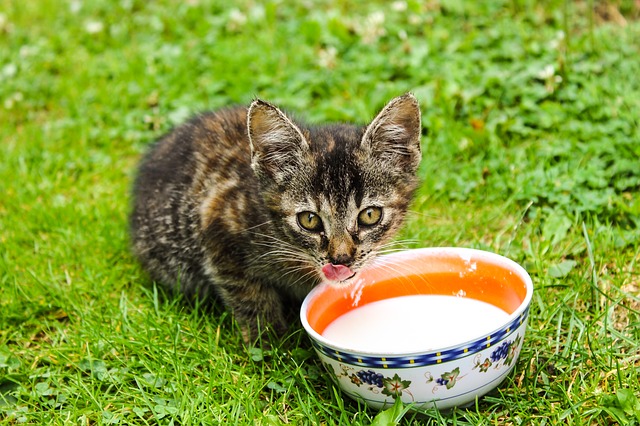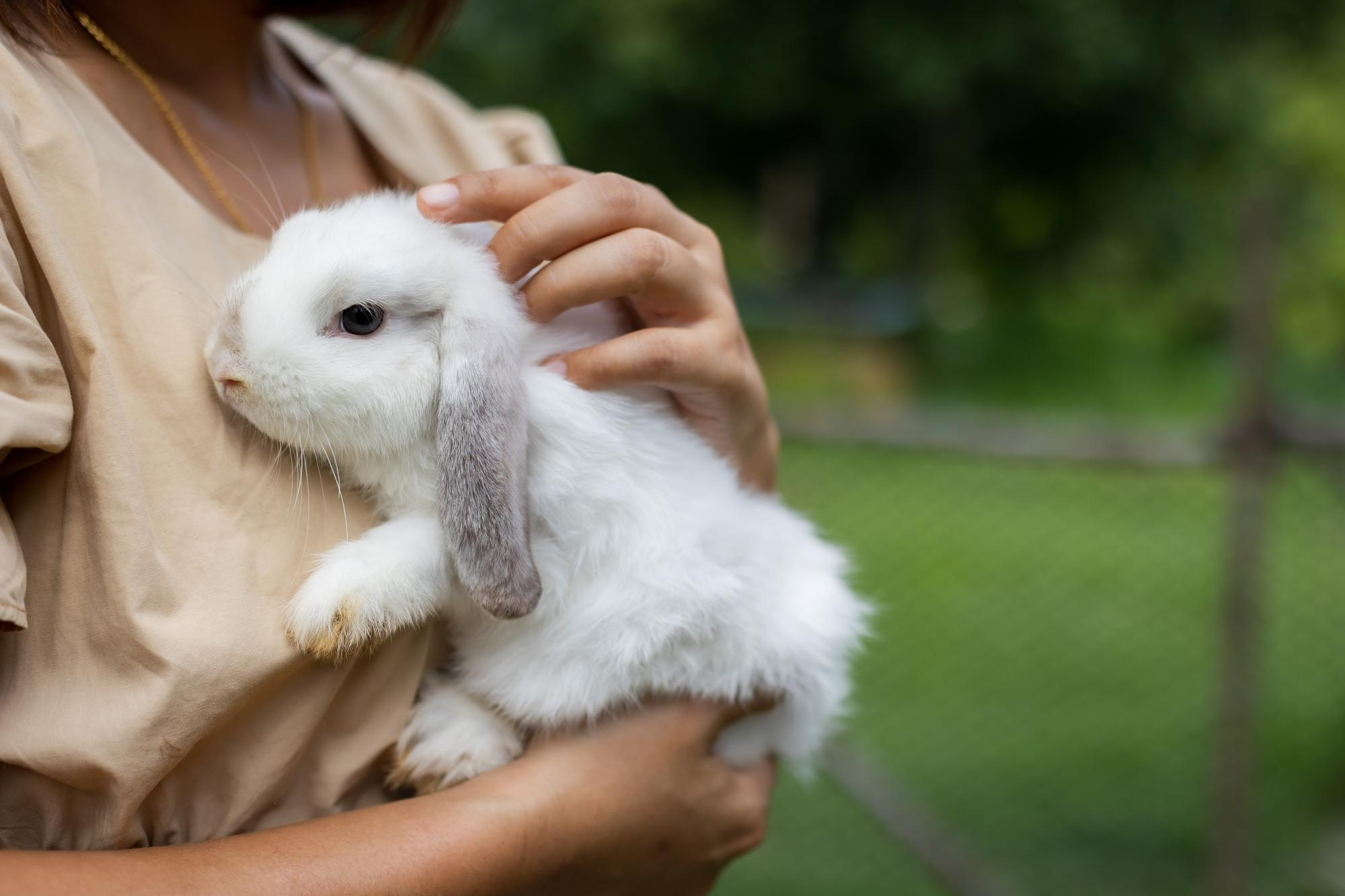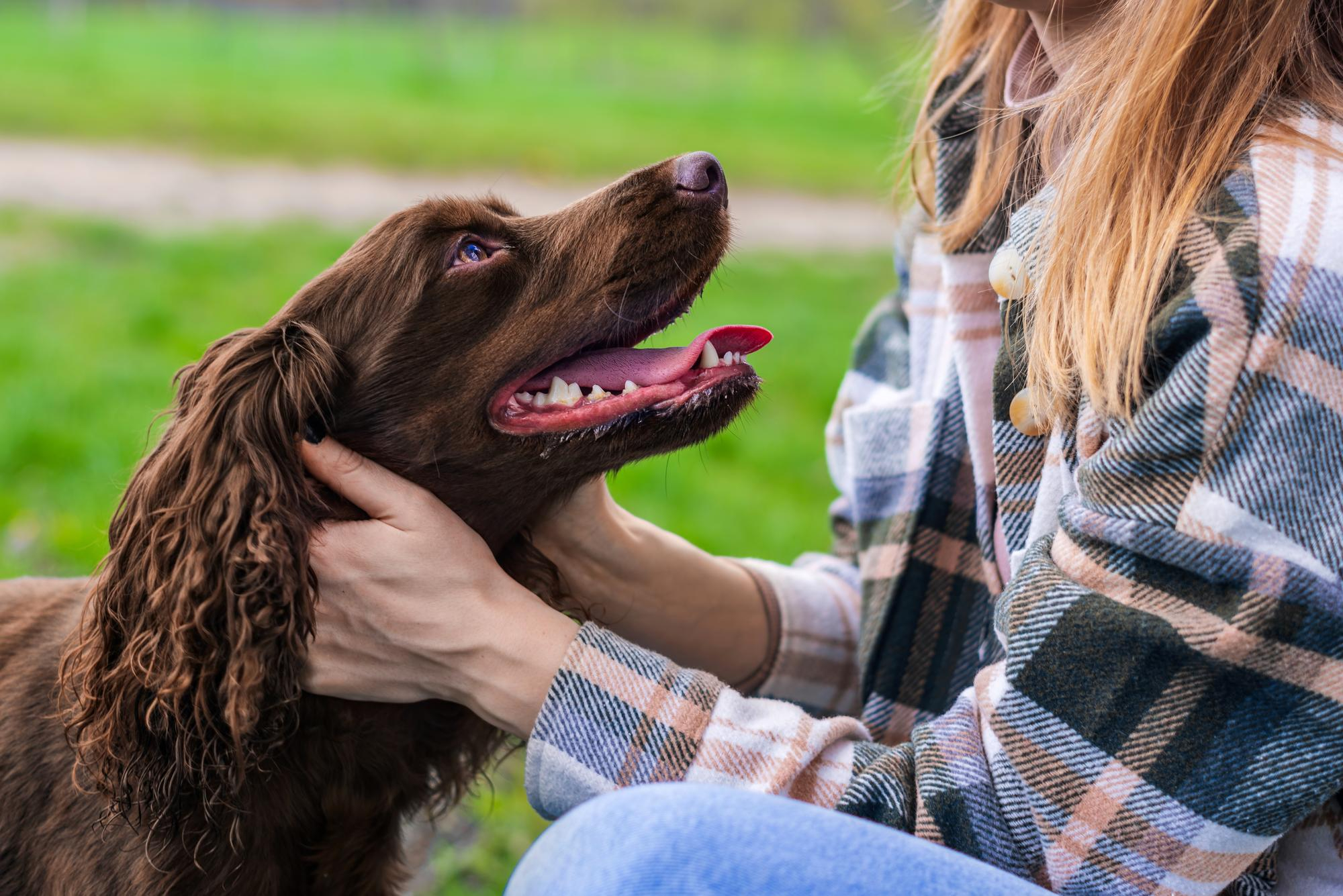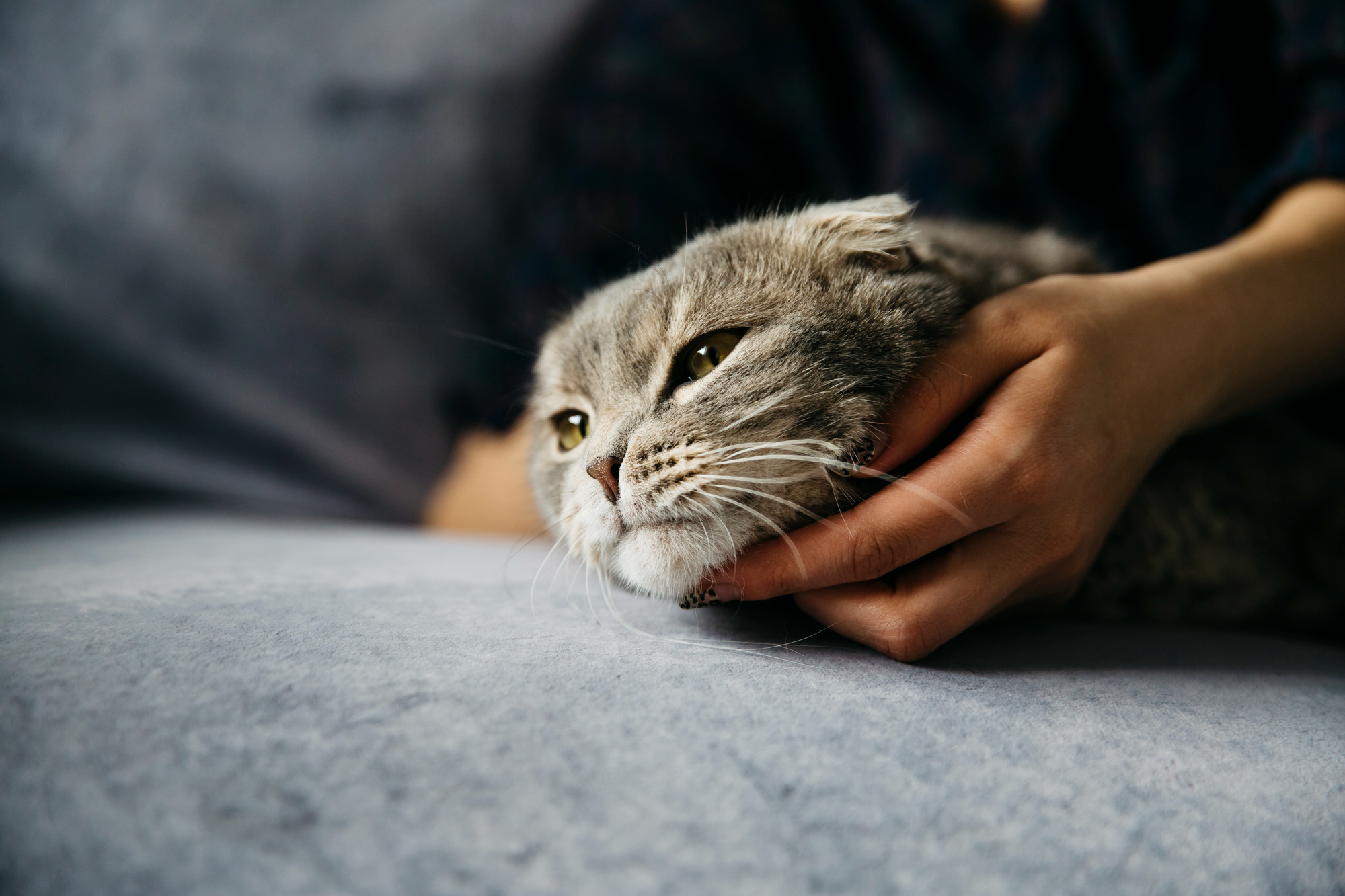To answer the question, “Should cats be allowed to drink milk?” the short answer is “no.” The puzzle that leaps to mind is, why are we cautioned against it when the sight of kittens and cats happily lapping up saucers of milk are shown everywhere? Not only do we see it in numerous movies, cartoons, and picture books, but also we see kittens fed milk by mother cats, and they obviously love drinking it. It’s the food for kittens provided by nature.
And therein lies the difference, and the answer—milk is the food provided for kittens, not cats. Mother cats feed their kittens milk and then wean them off from nursing in four to ten weeks, sharing solid foods with them instead. Mother knows best! Milk as a whole food is perfect for her babies, but it’s no longer good for them when they begin to mature.
As kittens are weaned from nursing and they begin to eat solid food, the mother cat stops producing milk. It is no longer available for the kittens by the time they are eating a regular solid food diet.
Why Does Milk Stop Being Ideal for Cats?
A few weeks after birth, there is a reduction of the enzyme lactase in a kitten’s body. Lactase is needed to break down the sugar in a mother cat’s milk to allow the young kitten to digest it properly. Kittens produce this enzyme in smaller amounts as they develop, and by six months of age, most kittens have adult levels of lactase. These adult levels are insufficient to digest milk and their bodies can no longer tolerate it. Basically, like some humans, most cats become lactose intolerant.
In addition to no longer producing lactase, kittens no longer have access to their mother cat’s milk since it dries up when she stops nursing. This means any other milk you decide to feed your older kitten or adult cat is even less suitable and less easily digested by your cat, who is now, very likely, lactose intolerant.
When cow’s milk is pasteurized, the protein in the milk changes and particles of homogenized milk will leak into a cat’s gut, which causes digestive problems for kitties. The same difficulty occurs if you decide to feed ice cream or cheese to your cat, which will also cause digestive problems since they are processed dairy products.
Milk is not a “whole food” for adult cats any more than it is a whole food for adult humans. Humans need many different types of foods to satisfy their nutritional needs. So do cats.
Are Some Cats Able to Drink Milk?
Yes, some adult cats can drink milk; not all of them are lactose intolerant. However, even if your cat is one of the lucky ones who can enjoy milk as a treat now and then, there are other problems with relying on whole milk as a staple in a cat’s diet.
One is a possible lack of meeting your cat’s nutritional needs because your kitty may fill up on milk and then not eat the variety of food necessary for good health. The other—equally serious—is cat obesity.
Why do Cats Crave Milk in Spite of the Problems it Creates?
Because cats are not capable of linking cause and effect, your kitty will never make the connection that drinking milk is causing his or her digestive distress afterwards. Fortunately, you can. You may wonder why cats continue to love milk when it is obviously not a good idea for them to drink it. These are the reasons:
- Cats love milk because it is cold and fresh, and they love the familiar taste and smell
- Cats connect drinking milk with old, positive memories (as kittens), and it remains a comfort food for them.
- Cats need liquid and may prefer milk to water.
Although your kitty may not be interested in drinking water, liquid is important for hydration and you must supply water regularly rather than milk:
- Keep water in your kitty’s water bowl.
- Add a little wet food to your kitty’s diet.
- When serving water-packed canned fish, add a little water to the liquid.
What are the Symptoms of Cats Suffering From Milk Consumption?
In spite of a cat’s determination not to show pain because of an instinctive fear of showing weakness to predators, there are distress signs of which cat owners should be aware.
Signs of Adverse Effects of Drinking Milk:
- Stomach Upsets – Your kitty may vomit and stop eating until he or she has recovered from the stomachache.
- Diarrhea – This problem is unmistakable and is caused by undigested sugar that draws water into the intestine.
- Gassiness – Most cats do not routinely expel smelly gas. The gas is created by undigested sugars fermenting in the intestine.
- Bloating – A distended abdomen can be a sign of bloating caused by gas from fermenting undigested sugar.
Even if your cat is able to tolerate milk and shows no symptoms of distress after drinking it, you don’t have a free hand to let your kitty drink milk regularly no matter how urgently he or she meows for it.
Obesity is Another Adverse Effect
Obesity is a health risk for animals just as it is for humans. Obese cats and obese humans have shortened life spans and are at risk for many unpleasant ailments.
If your cat has a regular supply of milk, your kitty will eat less of the nutritional, balanced diet you provide through canned food, which is much lower in calories. Most cats also enjoy eating dairy products such as ice cream and cheese, which add even more unwanted and unnecessary calories.
How Did the Message That Cats Can Drink Milk Become so Widespread?
People who don’t know any better spread messages about animals who eat foods that aren’t good for them. Animal experts no longer accept old-fashioned ideas about animal eating habits:
- Mice don’t normally eat cheese—Cinderella’s friend Gus is an exception.
- Dogs shouldn’t chew on bones, which can be dangerous to them—Scooby Doo takes lots of risks.
- Rabbits shouldn’t be offered carrots except in small amounts now and then—never mind what you saw in Bugs Bunny.
- Older kittens and adult cats shouldn’t drink milk regularly, if at all—forget what you learned from The Aristocats.
In the same way that you have to control children’s access to candy, you must be strong and not allow your cat to drink milk. It will help protect your beloved pet’s health and life.
Creative Commons Attribution: Permission is granted to repost this article in its entirety with credit to Hastings Veterinary Hospital and a clickable link back to this page.






